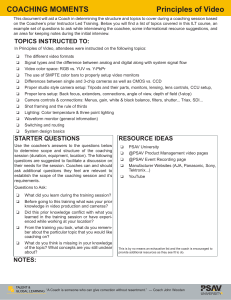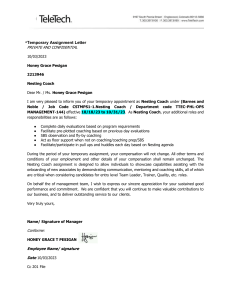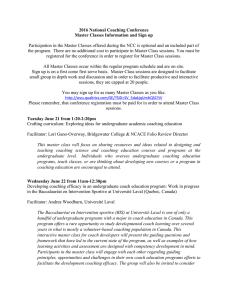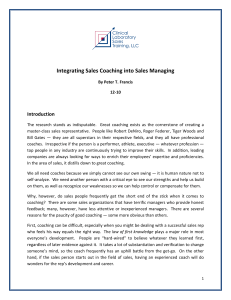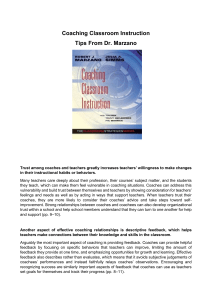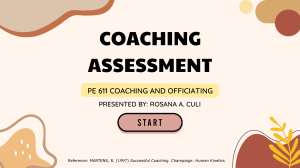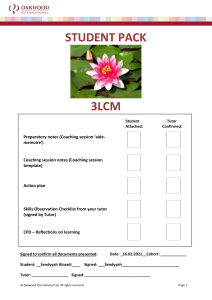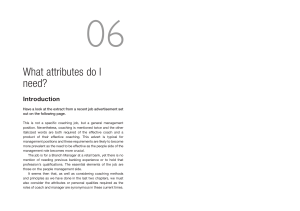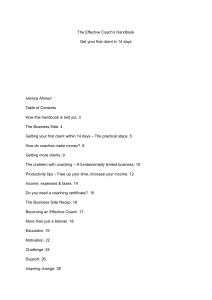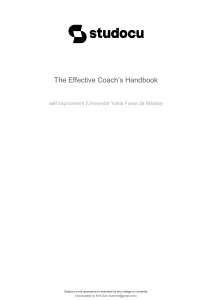What is professional coaching?
advertisement
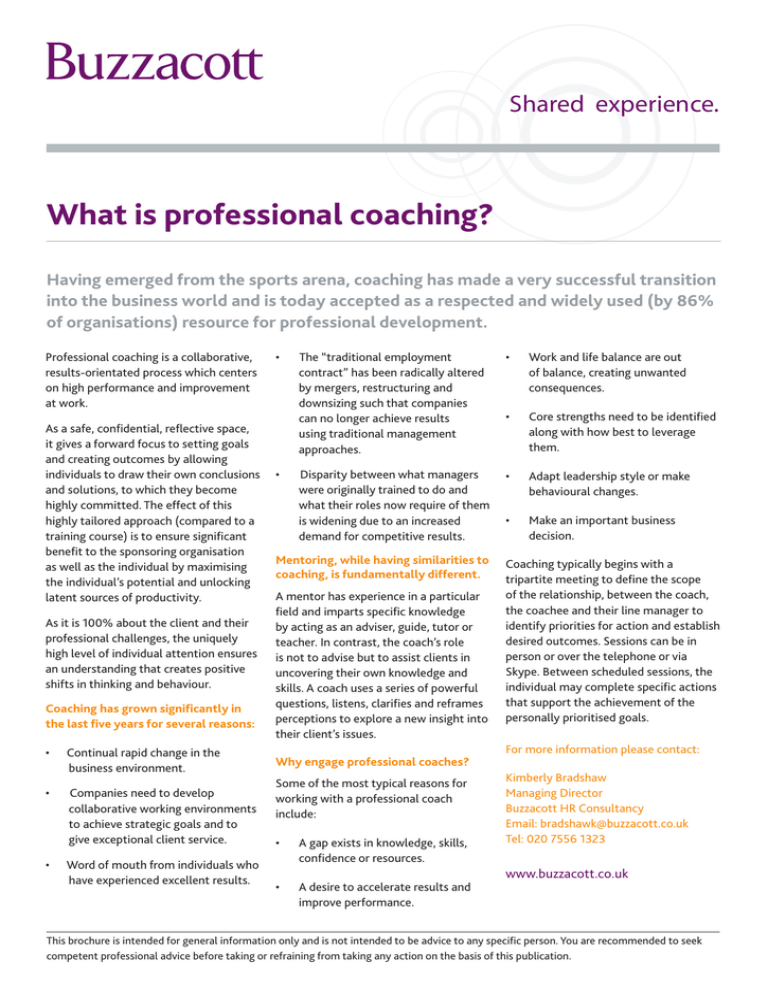
Shared experience. What is professional coaching? Having emerged from the sports arena, coaching has made a very successful transition into the business world and is today accepted as a respected and widely used (by 86% of organisations) resource for professional development. Professional coaching is a collaborative, results-orientated process which centers on high performance and improvement at work. As a safe, confidential, reflective space, it gives a forward focus to setting goals and creating outcomes by allowing individuals to draw their own conclusions and solutions, to which they become highly committed. The effect of this highly tailored approach (compared to a training course) is to ensure significant benefit to the sponsoring organisation as well as the individual by maximising the individual’s potential and unlocking latent sources of productivity. As it is 100% about the client and their professional challenges, the uniquely high level of individual attention ensures an understanding that creates positive shifts in thinking and behaviour. Coaching has grown significantly in the last five years for several reasons: • Continual rapid change in the business environment. • Companies need to develop collaborative working environments to achieve strategic goals and to give exceptional client service. • Word of mouth from individuals who have experienced excellent results. • • The “traditional employment contract” has been radically altered by mergers, restructuring and downsizing such that companies can no longer achieve results using traditional management approaches. • Work and life balance are out of balance, creating unwanted consequences. • Core strengths need to be identified along with how best to leverage them. Disparity between what managers were originally trained to do and what their roles now require of them is widening due to an increased demand for competitive results. • Adapt leadership style or make behavioural changes. • Make an important business decision. Mentoring, while having similarities to coaching, is fundamentally different. A mentor has experience in a particular field and imparts specific knowledge by acting as an adviser, guide, tutor or teacher. In contrast, the coach’s role is not to advise but to assist clients in uncovering their own knowledge and skills. A coach uses a series of powerful questions, listens, clarifies and reframes perceptions to explore a new insight into their client’s issues. Why engage professional coaches? Some of the most typical reasons for working with a professional coach include: • A gap exists in knowledge, skills, confidence or resources. • A desire to accelerate results and improve performance. Coaching typically begins with a tripartite meeting to define the scope of the relationship, between the coach, the coachee and their line manager to identify priorities for action and establish desired outcomes. Sessions can be in person or over the telephone or via Skype. Between scheduled sessions, the individual may complete specific actions that support the achievement of the personally prioritised goals. For more information please contact: Kimberly Bradshaw Managing Director Buzzacott HR Consultancy Email: bradshawk@buzzacott.co.uk Tel: 020 7556 1323 www.buzzacott.co.uk This brochure is intended for general information only and is not intended to be advice to any specific person. You are recommended to seek competent professional advice before taking or refraining from taking any action on the basis of this publication.




